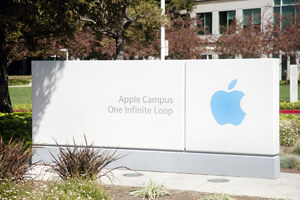 Although there’s no argument regarding proprietary Apple trade secrets or specific plans about future products –both sides agree Apple is entitled to confidentiality—Rivos argues that Apple wants to protect everything employees learned during their time at Cupertino, whether or not the information is Apple’s intellectual property.
Although there’s no argument regarding proprietary Apple trade secrets or specific plans about future products –both sides agree Apple is entitled to confidentiality—Rivos argues that Apple wants to protect everything employees learned during their time at Cupertino, whether or not the information is Apple’s intellectual property.Specific plans about future products, as well as proprietary Apple trade secrets, are not in doubt: both sides agree that the iPhone maker is entitled to keep these confidential. However, Rivos argues that Apple goes beyond this, and wants to protect everything employees learned during their time at Cupertino—known as the headquarters of Apple—whether or not the information is Apple’s intellectual property. Rivo’s complaint further says that Apple’s non-compete contract—which limits the ability of former employees to obtain positions with direct competitors—is said to be “designed to, and Apple uses to, chill employee mobility and competition
Apple’s lawsuit against Rivos and two employees, Wen Shih-Chieh a/k/a Ricky Wen and Bhasi Kaithamana, states that, “Starting in June 2021, Rivos began a coordinated campaign to target Apple employees with access to Apple proprietary and trade secret information about Apple’s SoC designs.” Apple said its secrets could be used to "significantly accelerate" the development of competing SoCs. According to Reuters, it asked the court to block Rivos from using its trade secrets, order its former employees to return its property, and to award it an undisclosed amount of money damages. Further, Apple said in the complaint that it sent a letter to Rivos informing the startup of the confidentiality obligations of Apple’s former employees.
Rivos responded in September 2023 when the company and six ex-Apple employees filed a countersuit in a San Jose federal court claiming (as well as above) that the tech giant’s “overbroad” non-disclosure and non-solicit agreements are unenforceable,” reported Bloomberg. “Afraid of any threat of legitimate competition in the marketplace, and hoping to frighten and send a message to any employees who might dare to leave Apple to work somewhere else, Apple has resorted to trying to thwart emerging startups through anticompetitive measures, including illegally restricting employee mobility,” Rivos said in its countersuit.
READ MORE CALIFORNIA LABOR LAW LEGAL NEWS
However, Apple was given a chance to file a revised complaint. The case is Apple Inc. v. Rivos Inc., 5: 22-cv-2637, U.S. District Court, Northern District of California (San Jose).
